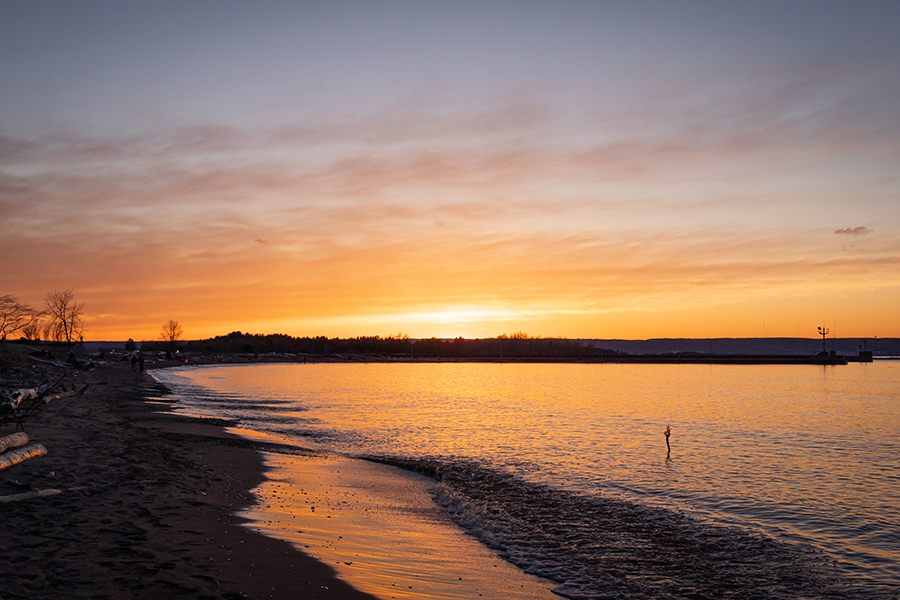TYPE
TOPIC
Northern Wisconsin local leaders seeking to build resilience in their communities can now apply for support through Wisconsin Sea Grant and the Lake Superior National Estuarine Research Reserve. Applications are due by July 25, 2025.
The Enduring Lake Superior Communities program provides guidance and support to community teams working on a chosen resilience-focused goal or project. Participating teams have access to up to $2,000 in funding, support from expert program staff, and the chance to connect with other communities working on similar challenges. This is the third year of the popular program.
Teams come into the program with a project in mind that will make their community more resilient in the face of Lake Superior’s changing environmental conditions.
Reflecting on their experience, recent participants shared that program staff provided exceptional support – breaking complex projects into manageable steps, offering hands-on assistance with emergency planning, and delivering expert, community-focused solutions with professionalism and enthusiasm.
Some project examples include:
- Revising or drafting planning documents, such as emergency preparedness action plans
- Connecting teams with existing resilience tools (or designing new tools specifically for that community)
- Conducting meaningful community engagement activities
- Supporting clear communication around resilience and coastal challenges, as well as emergency planning, response, and management
Participating teams of two to four people must be based in one of the four Lake Superior coastal counties in Wisconsin (Douglas, Bayfield, Ashland or Iron) and may include representatives from multiple jurisdictions. The teams should include community members in decision-making roles, such as tribal government staff, county or local government staff, elected officials, or members of local boards and committees.
“Communities around Lake Superior are experiencing a range of challenges related to resilience, including flooding, coastal erosion, stormwater runoff, culvert damage, and stress on their utility systems,” said Melissa Burke, resilience specialist at the Lake Superior Reserve. “Our team brings a wealth of knowledge to the table, offers dedicated support and connects participants with professionals to help them meet their unique goals.”
Teams who want to participate need to apply online by July 25, 2025. Teams will be selected based on resilience action readiness and alignment of needs with program resources. Teams will be selected in August and the program will begin in September of 2025.
An optional informational webinar about the program will be held on July 1 from 1 to 2 p.m.
